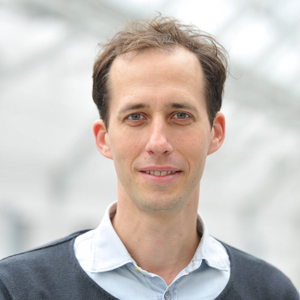Working towards a faster diagnosis
Fast facts
- Official title: Methylation based classification of brain tumours using nanopore sequencing (nanoDX): a prospective multi-centric evaluation.
- Lead researchers: Dr Philipp Euskirchen (clinical lead) and Professor David Capper (academic lead)
- Where: Charité Universitätsmedizin Berlin (Charity Hospital Berlin), Germany
- When: January 2020 – December 2022
- Cost: £297,237 over three years
- Research type: Adult and Paediatric, High and Low Grade, Clinical and Academic
- Award type: Clinical biomarkers
What is it?
Molecular testing is key to accurate diagnosis and treatment of brain tumours. This vital project aims to decrease the time it takes to get results, as well as improving access to the most cutting edge technology.
Using a device the size of a mobile phone, called nanoDX, gene alterations can be detected in a small amount of tumour DNA from biopsy. (Interestingly, nanoDX is also being used to quickly assess whether a person has the COVID-19 virus.)
Dr Euskirchen and Professor Capper have proved that nanoDX works in the controlled setting of a research lab, but now they will expand their work into the ‘real world’ – selected European pathology laboratories.
To achieve this, the team will run a three year trial in brain cancer centres in the UK and Europe, testing their processes and ensuring consistent, accurate results. Participants will be recruited at study sites in Oxford and London (UK), Basel (Switzerland), Berlin and Frankfurt (Germany), Bergen (Norway), Jerusalem (Israel) and Paris and Montpellier (France). All centres will offer the new test alongside existing tests so that no-one will miss out on current best practice (but may already benefit from the new results).
This trial is an important step for getting a new technology approved by healthcare providers like the NHS. It will provide evidence for regulatory bodies like the UK’s National Institute for Health and Care Excellence (NICE), which informs of the use of medicines, treatments and procedures.
This technology has significant potential to revolutionise access to timely, state-of-the art brain tumour biopsy diagnostics in the UK, mainland Europe, and beyond.
Dr Philipp Euskirchen
Why is it important?
Currently in major centres it takes 14 – 28 days, or longer in smaller centres, for clinicians to receive molecular biomarker results for their patients. This means that people are waiting too long for results to get a definitive diagnosis and, more importantly, waiting too long to start potentially life-saving treatments.
If successful, this work will provide people around the world with rapid access to state-of-the-art diagnostics, at reduced cost.
Who will it help?
The nature of this technology is that it would help anyone who has had a biopsy, or other surgery, for a brain tumour. This covers high grade and low grade tumours from both children and adults.
Milestones
- Recruitment into this international study has started with 18 participants already recruited. Patient recruitment across Europe will be the main focus of the study for the next 12 months.
- The team report that the study has been impacted by the COVID-19 pandemic but they are confident they will be able to complete recruitment within the planned timeframe.
Research is just one other way your regular gift can make a difference
Research is the only way we will discover kinder, more effective treatments and, ultimately, stamp out brain tumours – for good! However, brain tumours are complex and research in to them takes a great deal of time and money.
Across the UK, over 100,000 families are facing the overwhelming diagnosis of a brain tumour and it is only through the generosity of people like you can we continue to help them.
But, by setting up a regular gift – as little as £2 per month – you can ensure that families no longer face this destructive disease.

Dr Philipp Euskirchen
Dr Euskirchen is a physician scientist in the Department of Experimental Neurology at the Charité Universitätsmedizin Berlin.

Dr David Capper
Professor Capper is a Senior Consultant and Research Group Leader in the Department of Neuropathology at the Charité Universitätsmedizin Berlin. His group focuses on molecular neuropathology and tumour epigenetics.